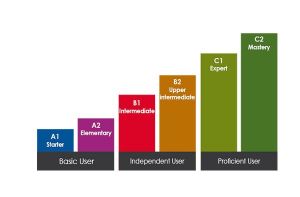Difference between revisions of "Language/Catalan/Grammar/0-to-A1-Course"
m (Quick edit) |
m (Quick edit) |
||
| Line 81: | Line 81: | ||
* [[Language/Catalan/Grammar/Questions|Questions]] | * [[Language/Catalan/Grammar/Questions|Questions]] | ||
* [[Language/Catalan/Grammar/Pronouns|Pronouns]] | * [[Language/Catalan/Grammar/Pronouns|Pronouns]] | ||
<span class='maj'></span> | |||
==Sources== | |||
* [https://ielanguages.com/catalan.html Catalan Tutorial: Basic Catalan Phrases, Vocabulary, and Grammar] | |||
* [https://escuelamediterraneo.com/blog/spanish-and-catalan-summer-courses-online-in-person-combined-learning/ Spanish and Catalan summer courses online / in person / combined ...] | |||
* [https://relearnalanguage.com/is-catalan-hard-or-easy-to-learn-it-depends/ Is Catalan hard or easy to learn? (It depends.) - Relearn A Language] | |||
{{Catalan-Page-Bottom}} | {{Catalan-Page-Bottom}} | ||
Revision as of 22:21, 14 March 2023
Hi Catalan learners! 😊
Are you ready to learn Catalan from scratch? In this complete 0 to A1 Catalan course, we will go through the basics of the Catalan language, everyday vocabulary, and introduce you to the unique culture of Catalonia. By the end of this course, you should be able to understand and use familiar everyday expressions and very basic phrases, as well as introduce yourself and others.
Let's take a closer look at the course content:
Basics of Catalan grammar
- Introduction to verb conjugation: Learn the present tense of regular verbs and the most common irregular verbs.
- Introduction to noun gender and singular/plural: Understand the general rules governing noun gender and singular and plural in Catalan.
- Introduction to adjectives and adverbs: Know the function of adjectives and adverbs and how to form comparative and superlative forms.
- Introduction to prepositions: Learn common prepositions and how to use them in sentences.
Everyday vocabulary in Catalan
- Greetings and farewells: Learn how to greet someone, say goodbye, and introduce yourself in Catalan.
- Common nouns and verbs for daily life: Expand your vocabulary with food, family, work, hobbies, and more, as well as common verbs for daily actions.
- Tourist and travel vocabulary: Get familiar with vocabulary for transportation, accommodations, sightseeing, and more for traveling in Catalan-speaking regions.
Introduction to Catalan culture
- The geography and history of Catalonia: Discover the region of Catalonia, its history, culture, and major landmarks.
- Catalan cuisine and gastronomy: Explore the delicious cuisine and food products unique to Catalan culture.
- Catalan celebrations, traditions and customs: Learn about popular festivals, holidays, and cultural celebrations throughout Catalonia.
Intermediate Catalan grammar
- Past tense conjugation: Master the conjugation of regular verbs in the preterite and imperfect tenses, as well common irregular verbs.
- Introduction to pronouns: Understand subject, direct object, indirect object, and possessive pronouns.
- Conditional and future tenses: Learn when to use the conditional and future tenses of regular and irregular verbs.
Intermediate vocabulary in Catalan
- Idioms, colloquial expressions and slang: Learn the most common idioms, colloquial expressions, and slang used in everyday conversations.
- Business and professional vocabulary: Get introduced to specific vocabulary used in business and professional environments, such as job interviews, meetings, and correspondence in Catalan.
- Expressions and phrases for writing: Know useful expressions for letter writing, e-mails, and other written communication in Catalan.
Arts, literature, and music in Catalan culture
- Major writers, poets, and literary works: Discover the most important Catalan writers and poets, as well as their major literary works.
- Major artists, architects, and musicians: Learn about famous artists, architects, and musicians throughout Catalan history and their contributions to the arts world.
- Artistic movements and traditions in Catalonia: Get to know the artistic movements and traditions that have developed throughout Catalan history, such as Modernism, Romanesque art, and more.
Advanced Catalan grammar
- Reflexive verbs: Understand the use of reflexive pronouns with verbs, their different conjugations in different tenses.
- Subjunctive mood: Master when to use the subjunctive mood of verbs, its different conjugations, and common irregulars.
- Passive voice: Comprehend the passive voice in Catalan and its different forms.
Advanced vocabulary in Catalan
- Scientific and technical vocabulary: Learn technical and scientific vocabulary specific to fields such as medicine, engineering, computer science, and more.
- Legal and political vocabulary: Master specific vocabulary used in legal and political contexts, such as contracts, treaties, and political speeches in Catalan.
- Literary and academic vocabulary: Expand your knowledge with advanced vocabulary used in academic and literary contexts, such as philosophy, psychology, and more.
Catalan history and identity
- Modern Catalan history and politics: Learn about Catalonia's modern political history and its quest for independence from Spain.
- Catalan identity and linguistic activism: Understand the importance of the Catalan language and its relationship with the idea of Catalan identity in Catalonia.
- Catalan cinema and popular culture: Explore important films, TV shows, and popular culture phenomena from Catalonia.
➡ If you have any questions, please ask them in the comments section below. 😎
Related Lessons
- Subjunctive mood
- Cardinal Numbers in Catalan
- Accusative Case in Catalan
- Nominative Case in Catalan
- Personal pronouns
- Reflexive verbs
- Future Tense
- Questions
- Pronouns

